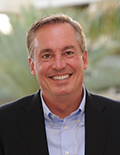
Bill Verhelle,
Founder & CEO,
Innovation Finance
At the height of World War II in 1943, Winston Churchill famously said, “Difficulties mastered are opportunities won.” As we face the unprecedented challenges associated with the COVID-19 pandemic, we consider the different perspectives of eight industry leaders.
David Coutu believes in work ethic, humility and trust. Growing up in a blue-collar household as the son of a nurse and a cook, Coutu watched his parents struggle financially. Nothing came easy. His parents’ intense work ethic inspired Coutu, who was the first in his family to attend college, to make the most of the opportunities they created for him. He attributes much of his success to his parents’ work ethic and dedication to his future.
Coutu joined Mass Mutual during its start-up in 2004. Throughout his career, he has had the opportunity to work for almost 20 different people, all with different approaches to leadership.
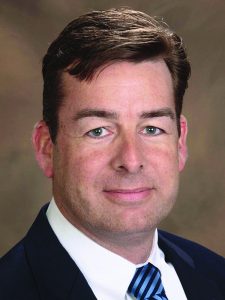
Through these experiences Coutu began to favor a “hands off management style” inspiring independent-minded professionals to execute effectively without tight constraints. Coutu reminds himself of the benefits of “asking” not “telling” when he works with his colleagues at Mass Mutual. Coutu gives the credit for Mass Mutual’s growth and success to the other employees with whom he says he is fortunate to work.
Coutu describes his transition into the president role 10 years ago as somewhat abrupt. While he was confident in his technical skills, he found developing people skills more challenging. Everyone processes things differently. Everyone sees things differently. This challenge makes leadership so complex. Technical competence came relatively easily to Coutu, but he had to work harder on the skills to inspire and lead effectively.
When asked about the COVID-19 challenges his business is facing today, Coutu says he is optimistic. He says some of Mass Mutual’s pre-COVID initiatives were helpful in addressing the new challenges we are all facing today. In addition, Mass Mutual’s focus on recruiting recent college graduates with strong technical skills has energized Mass Mutual’s business. Coutu also believes the company’s commitment to innovation and forward-looking practices will pay off during the period we are entering now. Coutu remains generally optimistic about the future, adding, “We need to take it one day at a time.”
As a non-English speaking young son of a poor, single mother, Tony Golobic, who immigrated to the U.S. from Slovenia, began his education with many disadvantages. He gives credit for his eventual success to his grandfather and a Roosevelt University professor who encouraged him to continue his education at the University of Chicago.
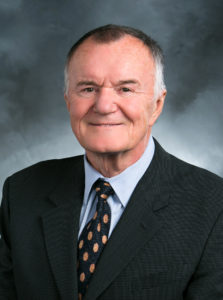
Golobic’s leadership philosophies were formed from remarkably diverse career experiences as a laborer, a U.S. Army soldier in Vietnam, an MBA from a top business school, a GE Credit executive and the CEO of his own company. These experiences forged a simple leadership philosophy: embrace a long-term perspective and do the right thing.
Marketplace forces often encourage short-term decision making. Those forces are the enemy of good leadership and long-term success, according to Golobic, who says making long-term decisions is critical for both life and business.
Another critical consideration for Golobic is corporate culture. “Employees are the most important aspect of building a great business,” Golobic says, adding that the important relationship between a company and employees is based primarily on trust. Golobic works tirelessly to build trust because only engaged employees can deliver the exceptional customer service that is core to GreatAmerica’s marketplace strategy.
A company’s dedication to its employees is tested during difficult times. “When the chips are down, that’s when people see what you are really made of,” Golobic says, noting that downturns are a time to deepen relationships. For example, Golobic communicated there would be no layoffs as a result of the COVID-19 pandemic and the company committed to continue with employee bonuses.
The last several months have reinforced some of the GreatAmerica’s fundamental beliefs. What 27 years ago was considered a “middle of the road” credit policy had lately become “conservative,” Golobic says, adding that his company’s reluctance to shift toward more relaxed credit standards will help in the current downturn. There is “no new normal in credit,” Golobic says. Sometimes your beliefs need to change as the world changes, but some beliefs are fundamental to continued success. They must be carefully considered before being altered.
Tom Depping started to work at a relatively young age, beginning with paper routes before working as a security guard and a janitor, all while attending school full time. Depping initially aspired to become a veterinarian before attending Eastern Michigan University to pursue a degree in accounting.
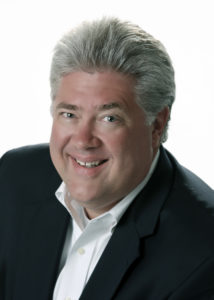
Depping started his career as a junior accountant at First City Bank in Houston before it became Sun America. He rose to president of Sun America in 10 years. Depping later led First Sierra, which he founded in 1994 and took public in 1997. First Sierra was sold to American Express in 2001.
After First Sierra, Depping led Main Street Bank’s equipment finance business before spinning it off and establishing Ascentium Capital in 2011. Ascentium started very small and grew quickly over the next eight years to $2.43 billion in managed assets by year-end 2019. “The growth curve at Ascentium was very steep,” Depping says. Ascentium was sold to Regions Financial in April and Depping is happy to be back in a bank environment. “It’s a great cultural fit,” he says.
Depping likes to move fast and has several leadership philosophies that guide him. “Hire the best people you can hire and then don’t micromanage them,” Depping says. “Give your great people the freedom to execute the agreed upon strategy.” Depping also emphasizes learning from mistakes. “Our success at Ascentium came from what we learned at First Sierra,” Depping says. “You are not an experienced manager unless you’ve been through a crisis.” Depping also recognizes the importance of corporate culture. “Good strategy, combined with a healthy culture, usually results in good execution,” Depping says.
Regarding the current challenges relating to COVID-19, Depping reflects on the company’s experience during Hurricane Harvey in 2017. That experience, according to Depping, helped Ascentium establish remote work capabilities and tested emergency procedures. Despite the challenges relating to the current pandemic, Depping remains optimistic about the future.
Dave Walton leads a complex commercial lending business with operations in more than 40 countries. How does one person effectively oversee such a vast operation? A fortunate series of events brought Walton to Cat Financial, which has been a great fit for him during the past 31 years.
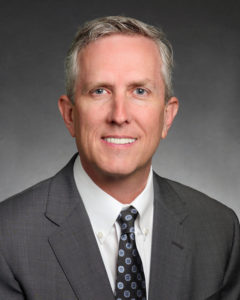
Walton was born in Peoria, IL, which for much of Caterpillar’s history was the company’s global headquarters, but Walton’s family moved to Cleveland and then to Milwaukee before he went to college. After graduation, Walton worked in credit underwriting for a small bank in Illinois. Cat Financial launched in 1981. Walton’s father, who worked in manufacturing at Caterpillar for 37 years, spoke with someone at the company about Cat Financial, which was looking to expand, and mentioned his son worked for a small bank. Walton applied and was hired in 1989.
During his first 14 years with Cat Financial, Walton worked in credit, collections and sales at six U.S. offices. In 2003, he began what would be more than almost nine years of overseas executive assignments, first in the UK and then in Singapore, before returning to the U.S. in 2012. He has been in his current role based in Nashville, TN, since April 2017.
One of Walton’s business priorities is building trust, saying, “It applies to all parts of our business. Customers want to know who will stand by them when times are tough. Cat dealers rely on us to deliver an excellent customer experience. Our fixed income investors and banks have high expectations on our financial performance through the cycles. And we are responsible to Caterpillar for consistently applying our capabilities to help the enterprise grow profitably.”
Walton says uncertainty about when to drive change and when to be patient in this age of rapid transformation is a key leadership challenge. He also thinks being too slow to change is a potential leadership risk.
Walton believes employee engagement is more important than ever during the COVID-19 pandemic. “Communicating what is happening and why it is happening is critical right now,” Walton says. “I’m spending more time than ever explaining why we are doing the things we are doing… bringing people alongside is key.”
Bill Stephenson never thought he would end up in the financial services industry. As a young man, he aspired to fly jets for the U.S. Air Force and received a Presidential nomination to the Air Force Academy. After two years, he realized this dream would not become a reality and made the decision to leave. On his own at the age of 20, with no financial or family support, he completed his degree at Florida State University.
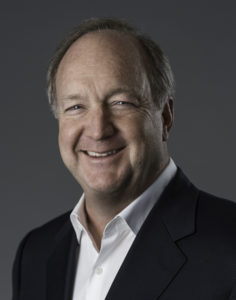
This period was significant for Stephenson as he gained independence as a young adult and established entirely new career interests. He began his business career in sales and joined Tokai Financial Services, which later became De Lage Landen Financial Services (DLL). After a series of sales and management roles, Stephenson eventually became CEO of the international asset finance company.
Stephenson believes employee ownership and responsibility comes from the freedom and independence to decide how to fulfill professional responsibilities for DLL and its customers. Stephenson also has a philosophy of asking why and avoiding telling DLL team members how to proceed with important company objectives.
Stephenson is proud of DLL’s focus on trying new things and becoming a leader in its human resource practices, as well as its approach to diversity. Because of its global presence and its Dutch ownership, DLL has a very diverse workforce. According to Stephenson, DLL team members come from more than 35 different cultures. This diversity is an important part of DLL’s strength, he says.
When asked about the pandemic, Stephenson points out that DLL had already been working on initiatives that have helped the company during the pandemic. As an example, he cites, “Workplace 2020,” which was an initiative started in 2016 around concepts of virtual working, the establishment of innovation hubs, unconventional job rotation programs, and bold new HR strategies such as the elimination of job titles and annual reviews throughout the company.
Stephenson is proud of DLL’s willingness to try new ideas. “We are not going back to working in the same way [after COVID-19],” he says. “We are working to become the company of the future, today. A complete transformation opportunity is in front of us right now, and we are planning to take advantage of it, and we will.”
Adam Warner grew up in the Chicago suburbs. During the past 30 years, Warner has led independent, captive and bank-owned equipment finance businesses.
Early in his career, Warner worked for an automotive diagnostic equipment company, where he transitioned from an operations role to an accounting role. From there, Warner became senior operations manager of a McDonnell Douglas-owned equipment finance company before joining Mellon Leasing, where he would spend 13 years in positions of increasing responsibility, ultimately as senior vice president of sales and marketing.
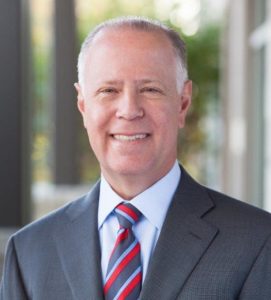
Warner joined Key Equipment Finance in 2001 to oversee the express leasing services business. He was promoted to president and chief operating officer of the company’s commercial leasing services business before being named president of the company in 2007.
Warner believes one of his most important responsibilities is putting the right people in the right seats. Cultural fit and personal interest are often more important than technical competence, he finds. This people-centric approach to leadership has made him a well-liked leader both inside Key and throughout the industry. Warner is a patient and thoughtful listener, and he communicates his sincere interest in his co-workers with his actions.
When asked about managing through a crisis, Warner suggests the ability to respond to crisis is especially important in this industry. “Leading through a crisis can test your endurance, your stamina and your goodwill,” Warner says. “I have learned that the key to success is leading with compassion and humanity at all times but even more importantly during tough times,” he says. Warner suggests that the challenges we face today are a gateway to something new, something different and hopefully something better. He believes a leader’s responsibility is to help guide the organization through these periods of unexpected transition.
“It is amazing to see who flourishes during and after a crisis, and it’s inspiring to watch top performers rise to overcome difficult challenges,” Warner says.
Mike Jones grew up outside of Atlantic City, NJ. He laughs while recalling the considerable guidance he received as the son of a New Jersey state trooper and an elementary school teacher.
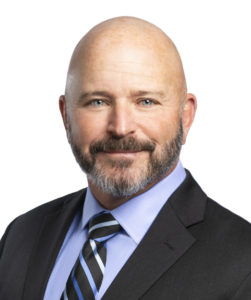
Jones began working toward a degree in accounting but soon realized he lacked the financial resources and maturity to complete college full time. He joined the U.S. Army, where he completed college and became an officer. One of his proudest moments was when his father pinned his officer bars on his uniform. Jones later attended and completed the elite Army Ranger School. Jones says his military experience was the most formative aspect of his character.
The military experience is about servant leadership, and Jones says you learn that success means taking care of your people so they can take care of the mission. Some people believe servant leadership reflects weakness, but Jones disagrees. He says it demonstrates the self-confidence required to acknowledge that leaders are entirely dependent upon their people, and the understanding that respect must be consistently earned.
Following a successful military career, the transition back to civilian life was difficult initially for Jones. He left the military during a challenging economic time and was uncertain how he would duplicate his passion for the Army. But he found his way, working for others who taught him more about leadership and starting his own financial services business. Eventually he joined CIT and fell in love with the organization.
Many principles guide Jones’ approach to leadership. As evidenced by his humble, conversational style, he advocates transparent, authentic communication. He values his connections with colleagues and is far more inspired to work hard for people he likes and respects. As a result, he appreciates the impact a leader can have when they inspire others. Jones also believes in communicating the important reasons behind business decisions so people can understand and get behind corporate actions.
Jones remains optimistic about CIT’s overall situation amid the pandemic. Thanks to its advanced technology, he believes the company is well positioned to face the unexpected changes. He says an important part of leadership is recognizing that no one has all the answers, acknowledging that fact and moving your organization forward during a time of crisis despite the uncertainty.
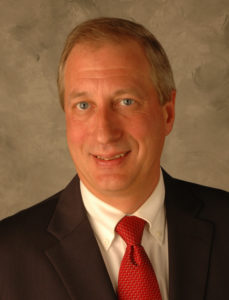
Dave Keener grew up in Pittsburgh. He attended Washington & Jefferson College, where he studied economics and accounting before attending Duquesne University, where he completed an MBA. His career started with Westinghouse, as an accountant. He worked in the Westinghouse group that financed energy facilities, which is how he met the bankers from PNC who financed some of the facilities. PNC Equipment Finance was just getting off the ground with a total of seven or eight full-time employees, and Keener was invited to join the group to help them formalize a pricing desk and strategy for the fledgling business. Over the next 29 years, PNC Equipment Finance grew from fewer than 10 employees and a couple hundred million dollars in assets to more than 300 employees and more than $16.7 billion in assets. Keener says he was fortunate to participate in this growth over three decades.
“The key to success in this business,” Keener says, “is understanding the fundamentals of how the business works to satisfy customers and meet the complex needs of the bank.” For Keener, who leads Specialty Finance for PNC Equipment Finance, the technical aspects of the job are complex, but they are not the biggest challenge. As a business grows and gets bigger, Keener says the tricky part is continuing to carefully listen to your people. For him, learning to lean on others for the success of the overall business is also sometimes a challenge. “PNC has vast resources,” he says.
From a leadership perspective, Keener believes staying at the forefront of needed changes is especially important. “You want to be a leader and not a follower,” he says. During a period of rapid change, such as the one we are in, he highlights three important leadership considerations: 1) refocus on customers and make sure you are meeting their needs, 2) use the diverse backgrounds of your staff to formulate a forward-looking strategy and 3) expand the technological capabilities of the organization to succeed in a rapidly changing business environment. Keener believes these strategies will help PNC succeed throughout these challenging times.
Final Thoughts
These profiled leaders have widely different backgrounds and experiences. They each have unique frameworks through which they see the world and their leadership role. They each seem to confidently rely on these mental models to guide them during times of difficulty, as they guide different businesses with widely differing strategies.
It is also noteworthy that they have several things in common. They are all surprisingly calm and they remain sincerely optimistic about the future. None of the leaders we met wasted any time wringing their hands about any dilemma they couldn’t overcome. Each leader appeared to believe that they (personally) and their organization (collectively) are quite well-suited to overcome the business impact of whatever totally unexpected challenge confronts them.
Another commonality is the fact they all give credit to their team members for their firm’s past success. While they recognize and feel deep responsibility for their leadership role, they seem to all recognize that the collective effort of the team is what produces organizational results. Everything they do is calculated to coordinate, empower and inspire the people in the organization who serve customers and make the business successful.